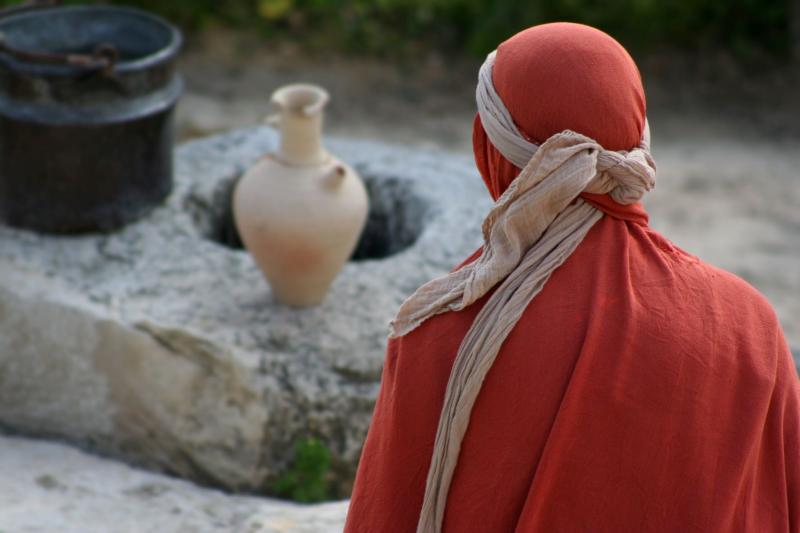
March 12, 2023 | Deacon Paul Kipfstuhl | Today's Readings
"Those who had disdained her before were now among the followers of Jesus."
Lent is a time to journey with Jesus.
Week by week, the Gospels invite us to accompany him from the desert where he reminds us not to give into temptation, to the mountaintop where he was transfigured, and today to a village well, where he encounters a humble Samaritan woman.
Tired from his travels, Jesus immediately asks the woman for a drink of water. John’s Gospel notes that Jews and Samaritans have nothing in common, and for Jesus, a Jewish man, to ask this Samaritan woman for assistance was certainly contrary to societal norms of the time.
As the conversation continues, Jesus tells the woman that he is the “living water” of eternal life, and then proceeds to question her about her marital status. She comes to realize that Jesus is the Messiah, and quickly runs off to tell the townsfolk of this encounter.
In reflecting on this passage, it struck me as a remarkable expression of restorative justice and transformative justice. Two key pieces of restorative justice are present in the story, as Howard Zehr notes in The Little Book of Restorative Justice — there is both an encounter, and accountability.
Obviously, the encounter at the well speaks to the first of these two themes. But it is the accountability piece that resonates.
The woman went to the well in the middle of the afternoon when she was not likely to meet any other people. She had been ostracized by the community for the number of husbands she had. Jesus knew this, and had her admit to her wrongdoing. She repented and believed, and then went running to the town freed from her past.
There was no condemnation on Jesus’ part. Rather, he worked with the woman to restore her to good standing within the community. She was welcomed back to the point that those who had disdained her before were now among the followers of Jesus.
As our Lenten journey continues, may we look for opportunities to encounter our brothers and sisters and promote transformative justice to help change the culture and follow the teachings of Jesus.







